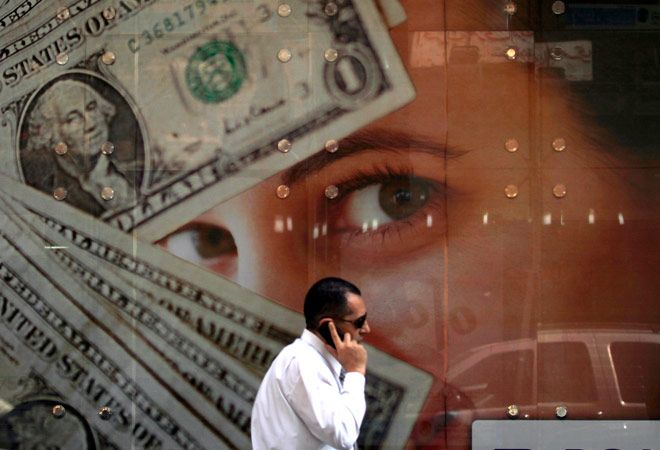An expected withdrawal of FIIs from the market likely to weaken the rupee against the dollar.

A 25 basis point rise in interest rates by the US Federal Reserve might accentuate economic challenges for India in the coming quarters, in addition to the persistent uncertainty on account of demonetisation of high denomination currency, feel economists.
A key finance ministry official said indications by the Fed about three rate hikes in 2017 could exert pressure on the Indian economy, though the 0.25 per cent rate hike has been factored in.
An expected withdrawal of foreign institutional investors from the market is likely to weaken the rupee against the dollar over the next few quarters. This is likely to have some impact on consumer price inflation, on account of more expensive imports, say some.
The Fed is expected to raise rates twice or thrice more in 2017.
“The Fed rate hike and rupee depreciation have added to the uncertainty for the Indian economic growth outlook for the next couple of quarters, posed by the impact of demonetisation on consumption. Besides, with two-three (Fed) rate hikes expected in 2017, the dollar is expected to strengthen further," said Aditi Nayar, principal economist at ratings agency ICRA.
ICRA will will review its earlier forecast for the March quarter after the amount of new currency released into the system by December 31 becomes clear, “as this would indicate how quickly economic activity normalises”.
The economy is expected to see a dip in the third (December) and fourth (March) quarters on account of muted consumption activity due to the cash crunch. In the financial year’s first half, gross domestic product had expanded by 7.2 per cent.
The rupee closed on Thursday at 67.84 a dollar, 0.6 per cent lower than Wednesday and the sharpest fall since November 11. During the day, it touched a low of 67.89 a dollar. The Sensex closed at 26,519.07 points, down 0.3 per cent from its previous close. The fed rate hike may put pressure on the rupee but this has been factored in, the finance ministry official said.
It will push up crude prices in the short-term, but that should come down subsequently, he added.
“However, the approach of the fed chief (Janet Yellen) is hawkish. Further, US fed hikes will put pressure on Indian economy,” he said.
Observing that Fed rate hike has ended the uncertainty surrounding the major global event, Economic Affairs Secretary Shaktikanta Das said the Indian markets have already factored in the impact of the increase.
“Projection for growth outlook remains fairly stable and only marginally improved. Markets had factored in the rate hike and we expect that our markets to stabilise after initial ripples or volatility. Whatever has happened is not unusual and our markets will remain fairly stable,” Das said.
Arvind Subramanian, the government’s chief economic adviser, said the economy was well cushioned to absorb the Fed move. “This was anticipated and expected…after the US elections there were already big fund flows from the emerging markets. (As) India is in a bright spot, the impact on us would be much smaller,” he said.
He added that the Reserve Bank's policy review (last week, it maintained the repo rate at 6.25 per cent) also took account of this in a sensible way. “There might be some short-term things. This is not something we need to worry about.”
The other challenge, he said, was to keep an eye on the currency situation in Southeast Asia and in China.
Shubhada Rao, chief economist, YES Bank, said: “We maintain our projections for the rupee value against the dollar in the 68-70 range for the next 12 months, with sharp depreciation pressures unlikely, amid strong domestic fundamentals.”
Nayar of ICRA said depreciation of the rupee, relative to the dollar, posed a milder risk to Consumer Price Index inflation than to that in the Wholesale Price Index. “We continue to expect CPI inflation to modestly undershoot RBI's Q4 target of five per cent, permitting a further 25 bps cut in the repo rate.”
The image is used for representational purpose only. Photograph: Reuters












 © 2025
© 2025